Rick Caruso made history this week as the first current or former Los Angeles mayoral candidate to appear on the Joe Rogan Experience. In doing so, he answered one of the dominant political questions of our time: has (candidate name) gone on the Joe Rogan Experience, and if they haven’t, will they? Now we know, when it comes to Rick Caruso, that he has.
It turns out that Joe really likes Rick. “I wanted you to win,” he says literally ten seconds into their conversation. Rogan fled screaming from LA two years before the 2022 Mayoral election, but he has been keeping all three of his eyes on the situation back here, apparently.
And Rick really likes Joe back! He opens up that he shares Joe’s ferocious, unforgiving addiction to both the cold plunge and the infrared sauna: “I do it every day.”
Their conversation leads Rogan to an uncharacteristically vulnerable place: at one point he cries remembering his Malibu neighbors losing their homes in the 2018 Woolsey Fire.
I searched to see if Rogan had ever cried on his show before and could only find record of him having done so when he talked about his grandfather’s death. More podcast history made — with Rick Caruso bearing witness.
Mainly Caruso seemed very jazzed to be there. Why shouldn’t he be? If you consider the struggles of Mayor Karen Bass to be one of his primary metrics of happiness, then Caruso was having one of his best weeks ever: she had just been bulldozed by residents and politicians into reversing her decision to reopen the Palisades to nonresidents, and was about to get bulldozed into reversing her decision to give her appointed recovery czar Steve Soboroff a $500,000 dollar contract for three months of work. So this was an opportunity to have a nice chat in a week of nice headlines.
Early in the episode, Caruso carved out some time to demand that the Mayor fire Janisse Quiñones, the General Manager and Chief Engineer of the LA Department of Water and Power. “She needs to be fired, in my opinion, by the mayor,” he said. You’ve heard why: a reservoir near the Palisades was closed for repair and the hydrants eventually ran out of water, both issues of questionable relevance when it came to putting the fire out.
But demanding that the Mayor fire the LADWP General Manager has become part of Caruso’s podcast set. He did an almost identical two minutes about it on Sam Harris’s show a week earlier. And these two-minute bits are, I’m afraid, an important harbinger of what we’re all going to be watching play out for the next two years.
LADWP is the largest publicly-owned utility in the United States and a gigantically important part of everyone’s life in the city. The General Manager position — a job previously held by William Mulholland, the most famous utility chief in American history — is one of the most prestigious and highest-paid positions in city government anywhere. But serving as LADWP’s leader has been something of a benighted role for multiple decades now. Basically: the job sucks and nobody wants to do it for very long.
Twelve people have led the department since 1997, including interim leaders. That’s an average term of two years and four months — and the conclusions of these terms tend to be oddly dramatic. One GM resigned to undergo cancer treatment. One had a massive heart attack. One is currently serving six years in federal prison for a bribery conviction.
The main perk is you get to work in the best building in LA. The GM’s office in here is probably cool as shit:
But otherwise it sucks. Quiñones was appointed in May of 2024 and is already being held responsible for one of the worst disasters in American history, and her GM experience is maybe about average so far.
If there were an actual cursed government position in LA, it checks out that it would be the one held by the guy who stole an entire watershed. But the GM role is also built to suck. Here’s David Nahai, GM from 2007 to 2009, from a 2016 KPCC article about city’s inability to keep people in this job:
"If you take a look at just the turnover of that position, my predecessor suffered a heart attack, his predecessor came down with cancer, my successor lasted only six months," Nahai said. "It's a very stressful position, no doubt about that."
There is little "structural strength in that position," Nahai said. "The GM doesn't have a contract like the police chief has, and there are limits on her authority, and so it's very demanding politically to navigate through the political process to get things done."
It’s demanding politically to navigate the political process. He’s talking about having to deal with politicians, but also residents, regulators, unions, environmentalists, the energy market, and many other inherently political entities.
Almost a decade later, on Rogan, Caruso also finds politics to be the problem with the GM job — but in a different way. Here he is talking about his time as an LADWP Board Commissioner, one of the five people appointed by the Mayor to hire the GM and set policy for the Department, and what went wrong after he left.
But the reality really has set in that you’ve got to have competent leadership. And what happened at DWP — because I was there for 13 years, ten of which I was President, or close to ten — is the head of that department got politicized. Years ago under Bradley and under Riordan, under Hahn, the general manager of Department of Water and Power was always somebody who came through the ranks who was just this exceptional engineer, and that department was regarded as best in class in the country as a utility… it built some of the most amazing projects in history, including Hoover Dam. So let's just start with that one. Then what happened, politics creeped into who was the general manager. That destroys an organization.
LADWP did not build the Hoover Dam — that was the United States government. But LADWP did run the Hoover Dam powerhouse for 50 years along with SoCal Edison, so whatever. The point is that LADWP used to be great until the leadership decisions got political. He said the same thing on Sam Harris’s show:
Back in the day of Tom Bradley, or Dick Riordan, or Jim Hahn that I worked for, there was sort of this Golden Rule that you didn’t politicize these critical departments… and as long as I was there for 13 years, the head of that department always was an engineer that came up through the ranks, so that they really understood the system. That broke down some years ago with Garcetti, and the head of that department became more of a political person. And I think that’s just a mistake, and we’re paying for that mistake and a lot of others.
(Sam Harris also really likes Rick. “There are many of us in this town who, if we could have built a time machine and gone back — after killing Hitler and doing a few other nice things, we would have figured out a way to get you in the Mayor’s Office,” he says. Wow! I gave up my professional life to go into local government and I do not feel that strongly about it.)
Anyway: he’s calling Janisse Quiñones, Mayor Bass’s selection for LADWP leader after a national search, a political hire. But if you look at her background, that’s not a particularly obvious label for Quiñones. In fact, you could argue that she exemplifies the type of public servant that Caruso himself extols — someone with decades of private sector experience (like him). Quiñones was in senior leadership at both Pacific Gas & Electric and San Diego Gas & Electric, running both gas and electric operations at different points. She’s also an engineer by training.
Some, then, have speculated that when Caruso talks about “political” hiring, he’s really talking about “politically correct” hiring. Quiñones was born in Puerto Rico and speaks with an accent. Alissa Walker from Torched raised the question on LA Podcast of whether Caruso is using “politics creeped in” as a proxy for “DEI hire.”
And maybe it bears mentioning that Caruso has not called for anyone at SoCal Edison, whose equipment is now increasingly believed to have actually started the Eaton Fire in Altadena, to be fired. Or said anything about SoCal Edison at all.
But whatever Caruso is saying about Quiñones, his memory of why previous LADWP appointees were hired is way, way off. Particularly when it comes to the appointments by Richard Riordan and James Hahn, who Caruso regularly namechecks as his mayoral role models.
None of the four LADWP General Managers appointed by Mayors Riordan or Hahn were “somebody who came through the ranks who was just this exceptional engineer,” as Caruso remembers. And there is no evidence whatsoever of a “Golden Rule” against politicizing the department during their administrations: half of the leaders those two mayors appointed were longtime political insiders with no experience in utility management at all.
Let’s start with Mayor Riordan, whose first appointee to run LADWP was straight up his own Chief of Staff — a guy named William McCarley.
McCarley was a longtime City Hall insider, and Riordan, a private equity guy with no governing experience, had brought him in to help navigate the building. But then a year later Riordan wanted to get rid of McCarley so badly he scrapped LADWP’s ongoing national search for a new leader and chucked McCarley into the job, so he could shitcan him as Chief without costing him his pension.
Not only was McCarley not an “exceptional engineer,” the LA Times wrote when he was appointed that he was the first non-engineer to ever lead the department. That means the tradition of an engineer GM that Caruso says “broke down” under Garcetti was actually ended by Riordan.
After McCarley stepped down in 1997, Riordan replaced him with power cowboy S. David Freeman.
Freeman was an interesting guy and an energy lifer — he’d already run the New York Power Authority and the Sacramento Municipal Utility District. But he hadn’t “come up the ranks” at LADWP, and while he was trained as an engineer, he’d been working on the law and policy side for almost 50 years at the time he was appointed.
Then Freeman left in 2001 to go work at the state as James Hahn became Mayor, and Hahn appointed David Wiggs to replace him.
Wiggs was also not an engineer — he was an energy executive and consultant who had worked as an advisor to local politician Bob Hertzberg. (If you want to talk more about politics creeping in, Wiggs hired a PR firm with ties to Mayor Hahn that was caught overbilling LADWP, leading to another federal prison sentence for the PR firm’s CEO.)
Finally, when Wiggs stepped down under a shadow of scandal, Hahn sent in Ron Deaton.
Also not an engineer, Deaton had been the Chief Legislative Analyst at City Hall, where he was a powerful political operative — if you google “the consummate behind the scenes player,” the first result is Ron Deaton’s LA Times obituary. Deaton had been a low-level accountant at LADWP many years earlier, but otherwise had no utility experience. (He was the one who had the heart attack, on vacation in Costa Rica.)
So that’s four appointees: two political operatives with no utility management experience, two energy policy guys who had never worked at LADWP, and none of the engineer department lifers that Caruso describes as having been the standard for leadership when he was on the Water and Power Commission.
And then there’s the story of Caruso’s own appointment to the commission. This is how he describes it to Sam Harris:
I was asked when I was 26 to be a Commissioner, when Tom Bradley was Mayor. I had no idea what that meant. But I had a good friend who was a Commissioner, who said he would make the introduction, and he asked me what commission do I want to be on? I didn’t even know what to pick. I said “I love business.” And he said, “Well, how about the Department of Water and Power? It’s the largest public utility in the country.” And I said, “Sure, that one sounds good to me.”
Caruso says he was appointed to DWP Commission at age 26 — the youngest Commissioner in LA history — despite not knowing what a Commissioner was, and solely because he had a well-connected friend. Eight minutes later, he outlines the Golden Rule of “not politicizing these critical departments.”
You could look at the pictures of past LADWP leaders above and reaffirm the case that Caruso thinks white men are the only possible non-political hire. Maybe! But you could also argue that he’s just pursuing a basic strategy for running against an incumbent.
When Caruso makes any public appearance, he likes to write prescriptions for the Mayor — either telling her to do something or stop doing something. He did it when she initially announced the reopening of the Palisades without the National Guard:
A tweet like this is endgame, by itself. It mows the whole lawn. Either the Mayor stands by her decision and gets held responsible for any crime that takes place in the Palisades for the next year, or she changes her mind and Caruso gets to credibly act like he’s already setting policy for the city, which she did and then he did in the LA Times:
Caruso also said he plans to use the bully pulpit to advocate for struggling residents and businesses. He pointed to his statements this weekend criticizing Bass’ decision to remove the National Guard, scale back LAPD officers’ presence and reopen Pacific Palisades, which she quickly reversed late Saturday.
That’s how it works. When you’re a challenger candidate with a platform and you use it to demand policy changes, you wedge the incumbent into the position of either being held responsible for harms you had warned against or being accused of copying you. Meanwhile, you yourself are not be held responsible for anything. All upside for you, all down for them.
“But he’s not running.” Really?? Look elsewhere in Caruso’s Rogan experience, where we got the clearest articulation so far of what his new recovery nonprofit, Steadfast LA, is going to be doing.
So this organization I put together is to go be the advocate for those homeowners, to be the advocate for those business people that lost their businesses, and work alongside government and say, “Listen, we'll solve the problem for you and hand the blueprint to you. Then we're going to hold you accountable to implement it.”
In his initial letter outlining the scope of Steadfast LA, Caruso talks about the need to push government bureaucracy, but repeatedly says that the organization won’t rely on it. They’ll be “working alongside the government but not waiting on it,” he writes. “We will work with government when possible, but we will not wait for them,” he writes again a few paragraphs later.
But his words to Rogan suggests that his organization will not only be conditional on government action, but built for the exclusive purpose of setting those conditions. Steadfast LA is not going to do anything itself — it’s going to decide what government leaders should do and then demand it.
Does that sound a bit like another recent project of Caruso’s? Raising money to publicly advocate for a set of policy proposals is known as a “campaign.” Placing one individual at the center of a campaign is usually known as a “political candidacy.” The only thing stopping this project from being a complete mayoral campaign is an official Caruso acknowledgment that he wants the job, which would interfere with the project by requiring all of its spending to be regulated under ethics laws.
Caruso didn’t explicitly announce a run on the Joe Rogan Experience as much as concepts of a run. “Whether it's the governor or whether it's the mayor, I'm not quite sure. But I want to do something at some point.”
But he did announce the campaign. That was it.

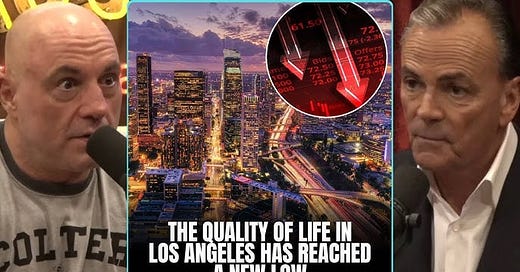



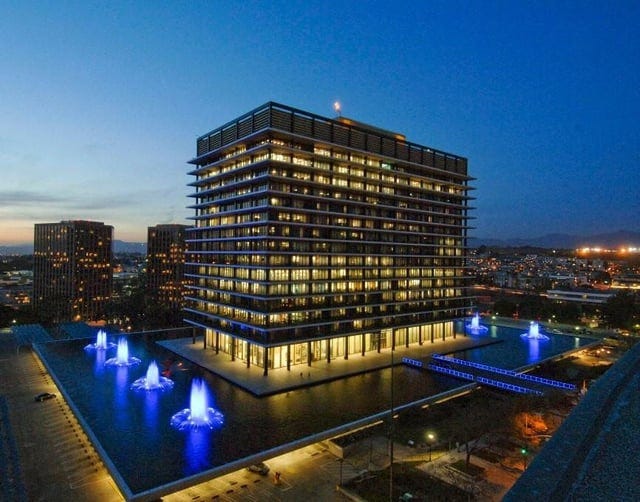
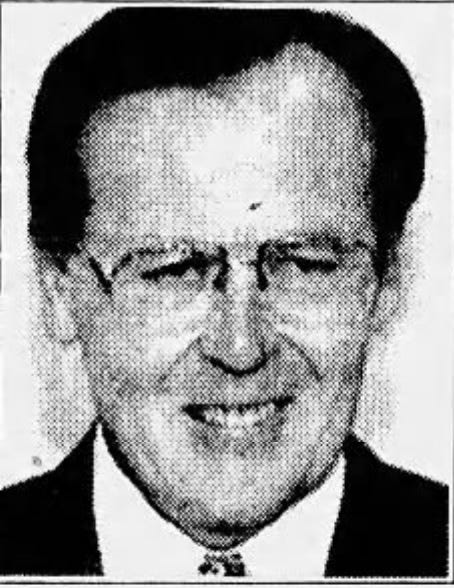
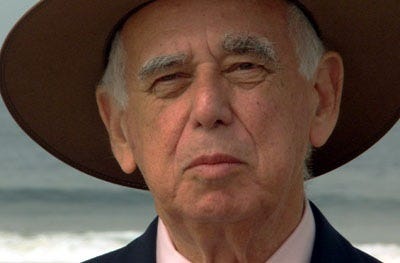
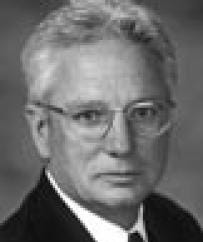
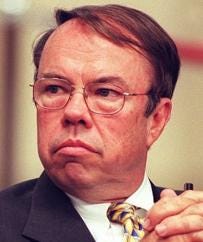
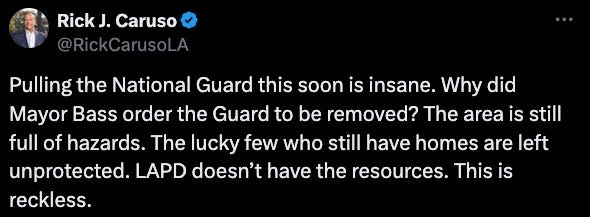
I love how full of shit this guy is.
One definition of competence: being on the LADWP commission for 13 years (10 as President!) and having a clue as to the background of earlier heads of the organization and not just making up crap that sounds good and puts down your political opponents.
Yes, I know: these days truth is optional and only required for losers.
I hope he runs. I just can't wait to vote against this guy.